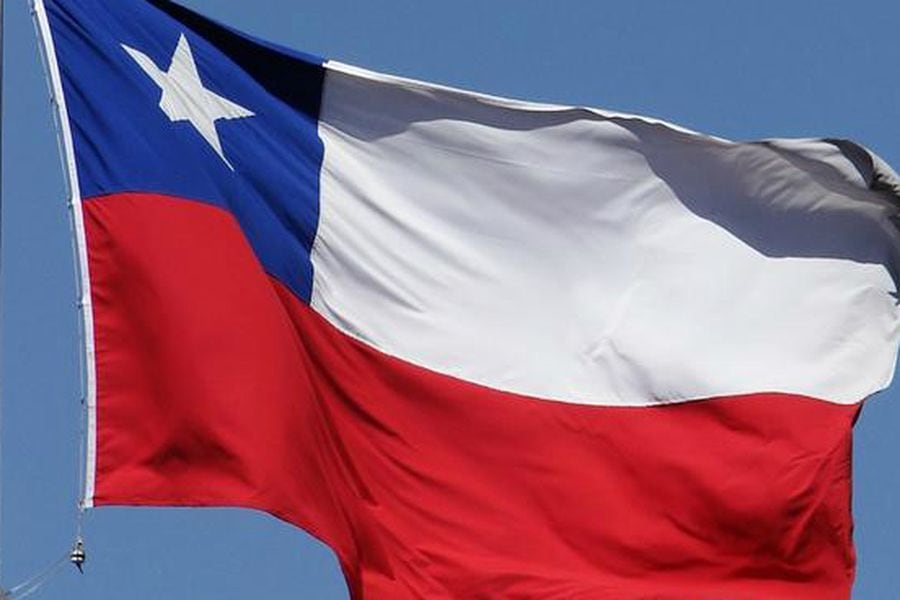
[ad_1]
According to the RAE, a patriot is one “who has love for his country and seeks all its good.” Our first patriots made the revolution of independence, and bequeathed us a sovereign Chile. But two centuries later, some self-described “patriots” have other concerns: avoiding a constituent process in the last plebiscite (they did badly) and cheering for the re-election of the president of a foreign power (idem).
Meanwhile, they do not hear news that the true patriots, those from before, would have worried.
This week, the Chinese state company State Grid Corporation bought Chile’s largest electricity distributor, CGE, for US $ 3 billion. Last year, State Grid had already acquired another of the three largest distributors, Chilquinta, for more than US $ 2 billion. Thus, the People’s Republic of China will control the electricity supply of 3.7 million Chilean homes, 57% of the country.
The other major distributor is Enel, whose main owner is another state, that of Italy. Between the Chinese and Italians, they will distribute 89% of Chile’s electricity, and the supply of 79% of homes will depend on them.
Thus, 33 years after the privatization of Chilectra, Chile once again has its nationalized electricity distribution, but in the hands of foreign states. In addition, 28% of Chile’s main power transmission company, Transelec, is already owned by another Chinese state-owned company, Southern Power Grid.
The 1980 Constitution, meanwhile, prohibits the Chilean State and its agencies from “developing business activities or participating in them”, unless a qualified quorum law authorizes it. A rule that, according to attorney Javier Couso, “is so hostile that it has no similarities in the world in comparative constitutional law.”
Note the paradox: the People’s Republic of China or the Italian Republic can freely buy and control companies in Chile, even in a strategic area such as electricity, but our Republic of Chile is prohibited.
The National Economic Prosecutor’s Office must endorse the sale of CGE, although experts consider it a simple procedure. “It is always better to have economic players this large in regulated markets than in those that are not,” says expert regulatory attorney Eugenio Evans. Unfortunately, experience forces us to be more cautious in the face of the danger of capture by the State. Enel (formerly called Endesa) has been a generous financier of politicians in Chile, and its history includes episodes such as the Lagos government’s efforts to benefit it in the Antitrust Commission, and the delivery of 1 million dollars to candidates in the 2013 elections , distributed by the president of the board, Jorge Rosenblut, the same one who had collected money for Bachelet’s “pre-campaign”.
If a multinational company moves such influences, what will happen if it belongs to the second most powerful state in the world, and Chile’s main trading partner? In the event of a conflict against that giant, will the regulator be able to defend the millions of Chilean families that are tied to a monopoly service?
And it is that the Asian influence is not reduced to electricity. Since 2018, China has led foreign investment in Chile. In the case of lithium, China’s Tianqi, together with Julio Ponce, controls the main producer, SQM, despite the fact that this is considered by Chile a “strategic resource.” Curious word: Latam was also classified as “strategic” when it requested a bailout of the Chilean Treasury, but it is partly owned by the State … of Qatar.
If a country should not allow itself to be naive on this issue, it is Chile. The two great bankruptcies of our Republic were caused in part by the economic interests in Chile of the empires of the time: the British in the 19th century and the American in the 20th. The Civil War of 1891 was financed by the “king of the nitrate”, the British John Thomas North, faced with the government of Balmaceda. And the destabilization campaign of the United States against the Allende regime was driven by interests such as the Anaconda Copper mining company and the ITT telephone company.
Through blood and fire we learned in the Cold War the dire consequences of becoming pawns on the board of superpowers. Now the dominant empire of the 20th century (USA) begins to be challenged in its area of influence (Latin America) by the challenging empire of the 21st century (China). What is our strategy in the face of this conflict?
In April, the German government announced that any foreign purchase of more than 10% of a company could be blocked by the Ministry of Economy if it perceives strategic risks, in areas such as infrastructure, defense, electricity, water and communications. Similar measures are taking or studying among others Australia, Canada, China, Japan, Russia, the United States and the European Union.
These are heated debates in all capitalist democracies: in which sectors should the state undertake? In what areas do you have to look carefully at foreign investment? In Chile, on the other hand, they are simple dogmas of faith established by the Chicago apostles. For our state, nothing. For the other states, everything.
These are topics that patriots in any country discuss with interest. But not ours. They are too busy ordering little gringo flags on AliExpress, and buying jockeys with the legend “Make America Great Again” in the Chinese Mall.